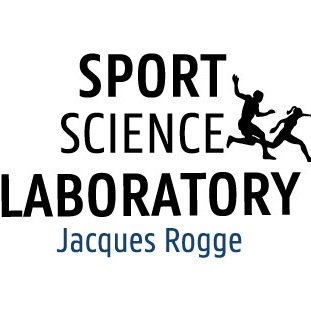
TeamDerave
@TeamDerave
Followers
2K
Following
6K
Media
213
Statuses
1K
Research group of W.Derave and @eline_lievens: @jeppe_foged, @helene_schroe, @ThibauxV, @CasteeleFreek, @AlexiaLoock, @Jonas_Vdc, @MaxUllrich94 & L.Haenebalcke
Gent, Belgium
Joined July 2013
5. Practice your race nutrition Gut training is key 🏃♂️ Make a personal race plan! Recommended carb intake: – 1–2h: 30–60g/h – >2.5h: up to 90–120g/h Use glucose + fructose (2:1) ➡️ Test what your gut can handle! 🔗Thomas (2016) doi: 10.1249/MSS.0000000000000852.
0
0
0
4. No one-size-fits-all Recreational ≠ elite athlete – Elite: gradual changes in muscle/fat mass – More glycogen stored in muscle = potentially more food needed Your needs = your goals, race type, and tolerance 🎯 🔗Landers (2000) doi: 10.1080/03014460050044865.
1
0
0
3. Signs of underfueling Know the cues: – Waking up hungry at night – Rapid weight loss / changes in body composition – Poor training or race performance – Ongoing fatigue 💤 – Low mood or focus 😵 🔗Mountjoy (2023) doi: 10.1136/bjsports-2023-106994.
1
0
0
2. Match your nutrition to your training More training = more food 🍽️ Carbs are crucial. Calculate your energy expenditure and adjust your intake accordingly. Not just how much, but when you eat matters too 🕒 🔗Hawley (1995) doi: 10.1080/02640419508732280.
1
0
0
1. Why nutrition matters in triathlon Nutrition = more than performance 💪 It’s key for recovery, health & overall well-being. Too little food? Risk of 🚫: – Bone issues – Gut problems – Low immunity – Missed periods - Iron deficiency
1
0
0
🏊♂️🚴♀️🏃♂️Nutrition in triathlon ➡️ Read the 5 key takeaways here of the webinar from Prof. Gregory Cox to our students 💡
1
1
2
5. Creatine Discovery in Sports? 🏅1992: Linford Christie wins gold (100m sprint) at 32 with creatine. 🧪A syringe slip-up with a racehorse led Dr. Harris to self-experiment, sparking a sports nutrition revolution. 💪#CreatineDiscovery 🔗Ref: Stout (2025)
tandfonline.com
Modern sports nutrition has evolved through discoveries in muscle metabolism and dietary supplementation. Advances in muscle biopsy techniques revealed how diet influences muscle energetics and exe...
0
1
2
4. Is Creatine Safe? ⚠️ Side effects are rare (occasional stomach discomfort/mild diarrhea) ✅ Even long-term use (years) at doses up to 30g/day seems safe 🔗 Kreider et al. (2025)
frontiersin.org
As researchers investigating creatine supplementation, we have become increasingly concerned about reports that government agencies are attempting to restric...
1
0
0
3. Benefits for Athletes 🏋️♂️ More explosive strength 🏃♂️ Improved endurance in short, intense efforts 💪 Enhanced muscle growth & recovery 💧 Supports protein synthesis & increases muscle hydration 🔗 Ref: Stout (1999)
1
0
0
🔥 Loading phase for athletes: 20g/day OR 0.3 g/kg/day (for 5-7 days) 🔗 Ref: Harris (1992)
portlandpress.com
1. The present study was undertaken to test whether creatine given as a supplement to normal subjects was absorbed, and if continued resulted in an increase in the total creatine pool in muscle. An...
1
0
0
2. Creatine Intake 🥩 Found in food: mainly meat & fish 💊 To maximize the increase in muscle creatine, supplementation is an option Recommended dose: 3-5g/day (vegan athletes: 5-7g/day!)
1
0
0
1. Creatine is an endogenous compound 💪 95% stored in muscles 🔋 Energy source: converted into creatine phosphate → helps maintain ATP during high-intensity exercise.
1
0
0
💊🚀Creatine & Human Performance: Unlocking Athletic Potential. Huge thanks to Prof. Jeffrey Stout (@ExphysPhD ) for an insightful webinar with our students! 🙌 Here are 5️ key takeaways ⬇️
1
1
4
- Inflammation is key to training adaptations. - Protective effect (as long as it resolves). - Fit individuals have lower baseline inflammation!🏋️♀️ 🔗 Ref: Hoseinpour et al. (2024) https://t.co/HIzqrskhuj (10/10)
0
0
0
5. Exercise & Inflammation 🏃♂️ Did you know exercise triggers inflammation? ➡️ The more intense/longer, the stronger the acute response. ❗ BUT… This is a good thing! (9/10)
1
1
1
⚠️Omega-6 vs. Omega-3 - High omega-6/omega-3 ratio = pro-inflammatory! - But… omega-6 is also essential! 🔗 Ref: Calder et al. (2020) https://t.co/xuyLXsq3yS (8/10)
1
0
0
4. The Role of Omega-3 = Essential to resolve inflammation! Deficiency? = Poor tissue repair 🚨 ✅Best sources: 🐟 Salmon, mackerel, sardines, fish oil (7/10)
1
0
0
❌Foods that fuel inflammation: 🍟🍩 Processed meat, fries, soda & sweets 👉 Contain: saturated fats, added sugars & trans fats 🔗 Ref: Dai et al. (2008) doi:10.1161/CIRCULATIONAHA.107.710699. (6/10)
1
0
0
3. Anti-inflammatory diet 🐟🍏 ✅Foods that reduce inflammation: Whole grains, fatty fish, nuts, olive oil, fruits & veggies 👉 Rich in: omega-3, vitamin D, fiber & polyphenols (5/10)
1
0
0


